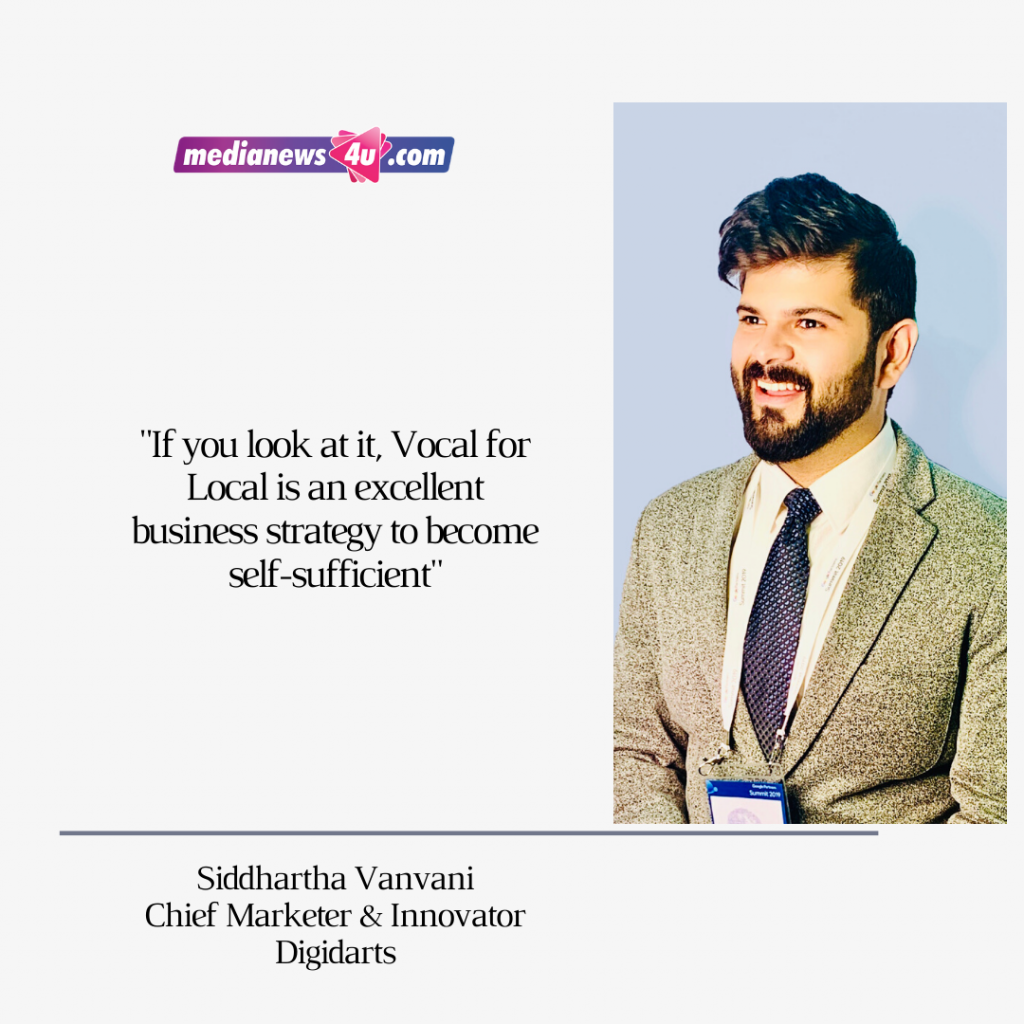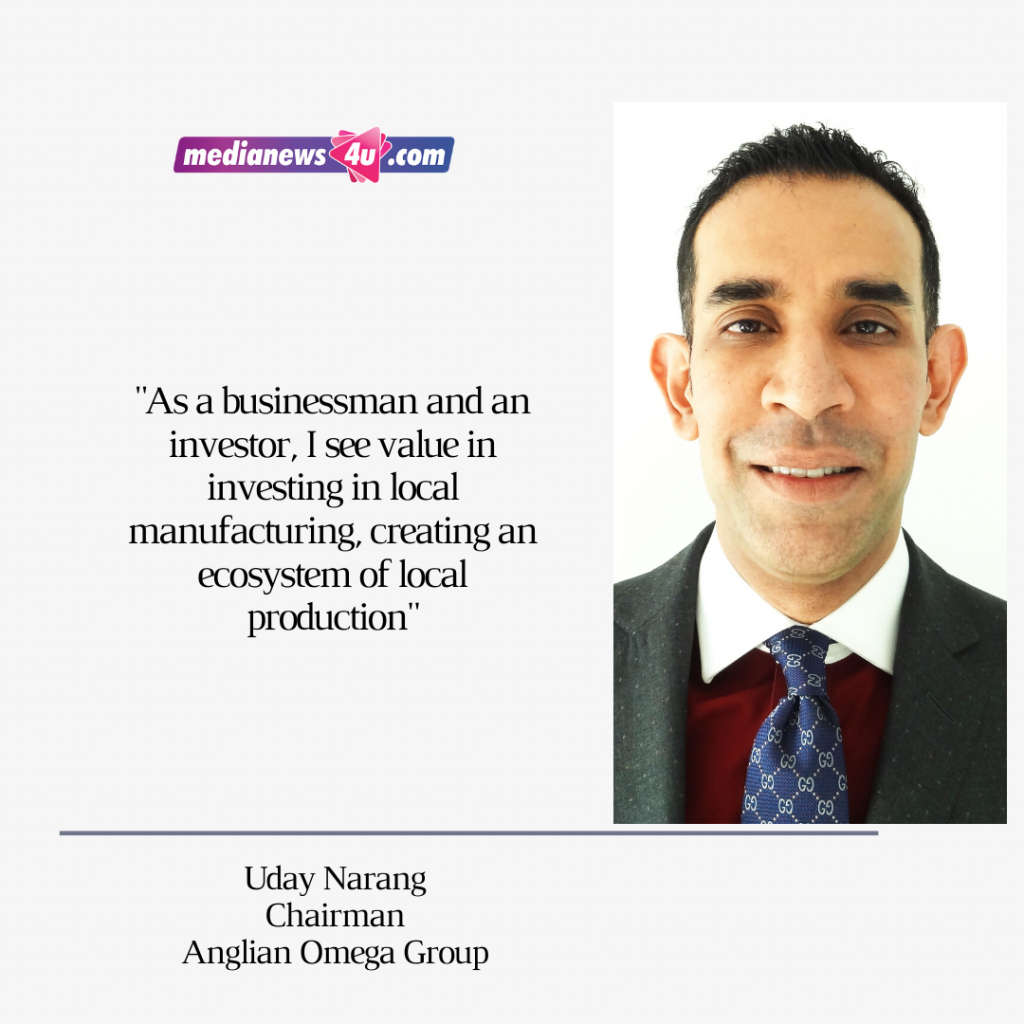In the ‘Man Ki Baat’ address on Sunday he again stressed on this point. PM Narendra Modi had made a clarion call to support local brands. “During this time of crisis it has made us realize the importance of local traders who have helped the country sustain during this long period of Lockdown due to the Coronavirus” he said.
As per many Experts despite the PM’s call, India will remain an open market and home-grown brands are not going to get any preferential treatment from the government. They have to win the consumer on the back of quality, innovation, pricing, and the right marketing mix.
We at MediaNews4u have spoken to people from various sectors, start-ups, and brand consultants to understand as to what how they have interpreted the term ‘Be Vocal for Local’.
Today, continuing with our series on ‘Be Vocal for Local’ we speak to two different sectors, one a Watch Brand and second a Digital Agency: Uday Narang, Chairman, Anglian Omega Group and Siddhartha Vanvani, Founder & Director, DigiDarts.
How do you interpret the term “Be vocal for local”?
Uday: We would like to walk the talk. We are a strong proponent of manufacturing local. However, we got to be clear about one thing- we need to create the infrastructure for local manufacturing. We need to make investments, etc. for the long term. Proper preparedness is essential to set up the complete supply chain. We need a time-bound action plan for this to work.
Siddhartha: If you look at it, Vocal for Local is an excellent business strategy to become self-sufficient. Supporting small businesses with whom you have a personal relationship has helped so many individuals recognize how they can help the business world at their own micro-level.

The difference between ‘local’ and ‘swadeshi
Uday: I do not wish to get into a debate about the dictionary meaning of local or swadeshi etc. As a businessman and an investor, I see value in investing in local manufacturing, creating an ecosystem of local production. Today it is easy to access products from across the world. So we need to produce world-class quality products in this country.

Siddhartha: Local is, of course, someone you know or have a personal connection with. It is more for the self-sufficiency of individuals. Swadeshi, as the term suggests, is self-sufficiency for the nation as a whole.
Vocal for Local takes precedence as before trying to help the country as a whole, as we should help our near and dear ones who are trying their best to make it in this ruthless market. This will invariably help achieve our nation being more Swadeshi, in terms of identity.
Are you seeing a spurt in buying of swadeshi brands?
Uday: I think so. Emotional purchases do happen. The virus got unleashed from China. So it is quite natural there is anger against Chinese products. The recent military intervention in the valley has not helped either. Though I do see a spurt currently but to sustain this we need to create scale and quality.
Siddhartha: Yes and No.
Yes, because since these times warrant for companies and brands to showcase self-sufficiency.
No, because people are even more conscious about their preferences.
We have companies which may be global but have been in India produce here and employ locals. Will consumers now stop buying these products?
Uday: If they produce here and employ local people I do not see any harm. You cannot drive away every foreign company or brand. It does not work like that in the modern world. The point of making a self-reliant India is not to drive away all the foreign companies. We need to stop importing materials/machinery etc. which are not being made here. We need to make them here. We need to produce value add products and services in India and export it all across the world.
Siddhartha: It is hard to gauge that exactly. The only thing we can say for sure is that if there is a unique value addition by a company to the masses, purchasing intent will remain the same or rise.

















